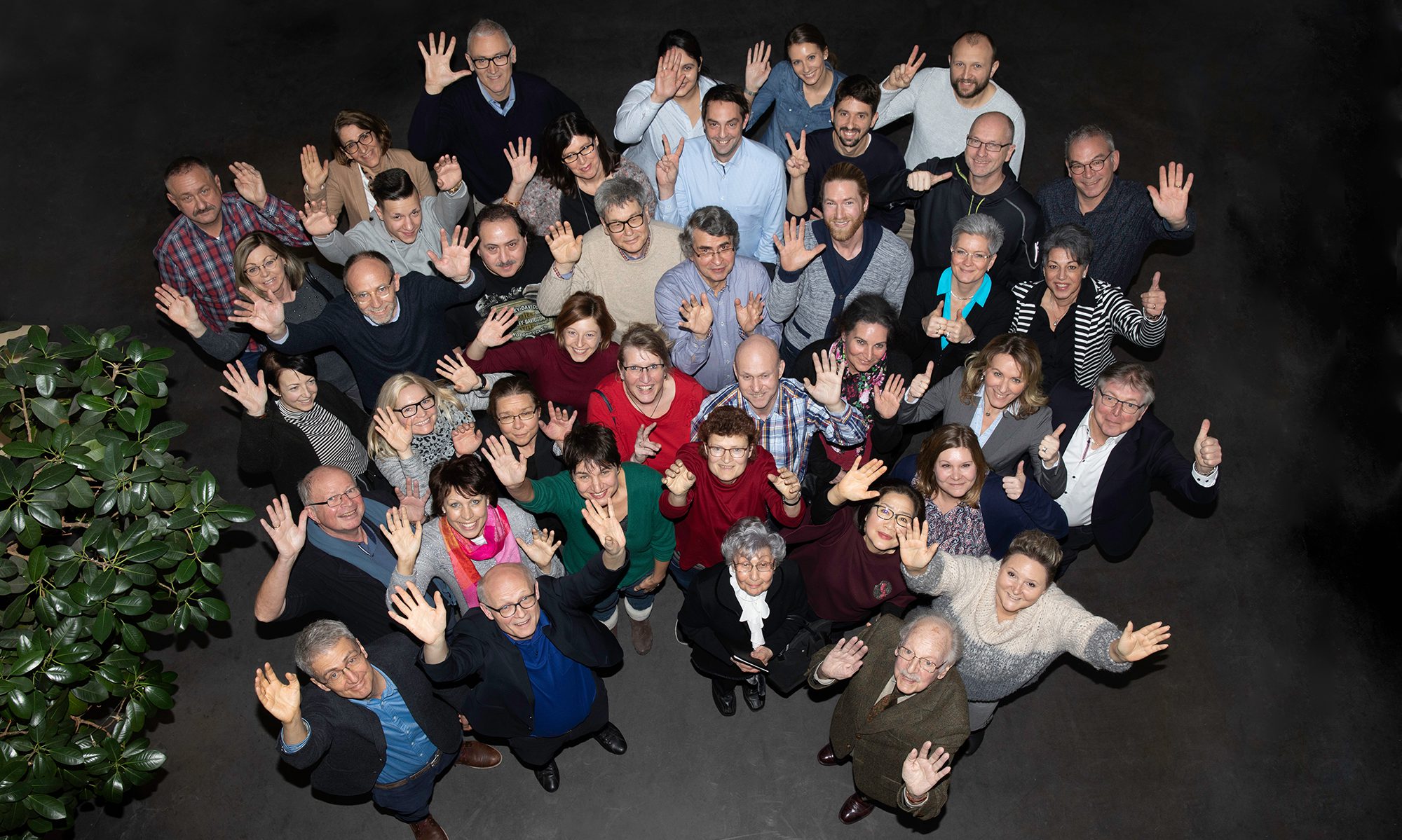We ROS1 patients are rare. So rare that we almost never meet in hospital hallways. We don’t meet at hospital self-help groups or patient days. But we want to get to know each other because we share the same fate – lung cancer with a ROS1 translocation. And we have burning questions: How are other patients, and how long do they survive with this disease? What medication are they taking, how well does it work and for how long? Do they have tips for dealing with side effects? And above all: How can we move forward? How do we stay alive? What can we do?
patient meetings
A group of ROS1 patients from across Germany and the Netherlands meet regularly to discuss these questions. We are doing surprisingly well. Thanks to targeted treatments, we have all increased our life expectancy, mostly by several years! Leading ROS1 lung cancer specialists provide us with information about cutting edge treatments, clinical trials and research activities. With their help, we can develop survival strategies. So we can think long-term again.
the global ros1 initiative
Patients across the world want the same thing: to improve their prognosis, life expectancy and quality of life. And because we can do more together, a unique initiative has come about. What makes it unique? Over 350 ROS1 patients and relatives in over 30 countries have come together in a global community: “the ROS1ders”. We share knowledge about ROS1 cancer, its diagnosis and treatment. The aim is to share experiences and mutual support, as well as information about authorised drugs and clinical trials. We want to accelerate access to effective treatments and more research. We want to make cancer with ROS1 gene modifications a controllable chronic disease.
contact and more information
Are you a ROS1 patient or relative?
Get in touch! Write to us: info [at] ros1-krebs.de
Or join our closed Facebook group
„ROS1-Lungenkrebs Patienten-Netzwerk“
More ways to find information and get involved:
1. The ROS1ders website with information on ROS1 specific (lung) cancer, treatments, clinical trials, patient initiatives and living with the disease: www.ros1cancer.com
2. The open Facebook group provides a space to share new knowledge about ROS1 and discuss current developments: www.facebook.com/TheROS1ders
3. The closed Facebook group for ROS1 patients and their relatives: www.facebook.com/groups/ROS1cancer/
Patients’ Tips on How to Deal with Common Side Effects of Crizotinib (aka Xalkori)
Crizotinib, also known as Xalkori, is a targeted therapy medication prescribed to many patients with ROS1+ cancer. It can be a very effective treatment and relatively tolerable, as cancer treatments go. However, as with most medications, patients may experience side effects.
According to the Xalkori.com website, “The most common side effects of Xalkori include: vision problems, nausea, diarrhea, vomiting, swelling of your hands, feet, face and eyes, constipation, increased liver function blood test results, tiredness, decreased appetite, upper respiratory infection, dizziness, feeling of numbness or tingling in the extremities.”
In addition to the common side effects listed on the Xalkori.com website, patients in the ROS1+ Cancer Facebook Group have reported other side effects, including: weight gain, low blood pressure, low heart rate, low testosterone, skin rash, low protein levels, low iron levels, taste changes and elevated creatinine levels.
for diagnostics and treatment, ros1 patients recommend the national network genomic medicine (nngm) lung cancer network partner
National Network Genomic Medicine
https://www.nngm.de/
recommendations from ros1 patients for doctors/cancer centres with experience in treating ros1
University Hospital of Cologne / Internal Medicine Clinic
Prof. Jürgen Wolf
Dr. Matthias Scheffler
Dr. Sebastian Michels
University Hospital of Cologne / Institute of Pathology
Prof. Reinhard Büttner
Dr. Sebastian Michels
Pius Hospital Oldenburg
Prof. Griesinger
Specialised Lung Clinic Immenhausen
Dr. Rittmeyer
Göttingen University Hospital Cooperation Partner (Pathology)
Dr. Schildhaus
LungenClinic Großhansdorf
Prof. Dr. Reck
Hannover Medical Faculty
Dr. Golpon
Robert-Bosch Hospital / Schillerhöhe Hospital
Prof. Friedel
Prof. Kopp
Dr. Kimmich
Dr. Wohlleber
Freiburg University Hospital
Prof. Waller
first lung cancer research group initiated by patients
Patients with ROS1 across the world want the same thing: to improve their prognosis, life expectancy and quality of life.
This is why a new research group at the University of Cologne, headed by Prof. Jürgen Wolf and Dr. Matthias Scheffler, focussing in particular on ROS1 translocation, is needed. We want to improve our understanding of how this disease begins, progresses and develops resistance to treatment. We want to facilitate access to known and effective treatments that are not yet authorised and accelerate the testing of new treatments. We want to make cancer with ROS1 gene modifications a controllable chronic disease.
If you want to help this research, please find more information in this PDF:
![]() research group ROS1
research group ROS1

